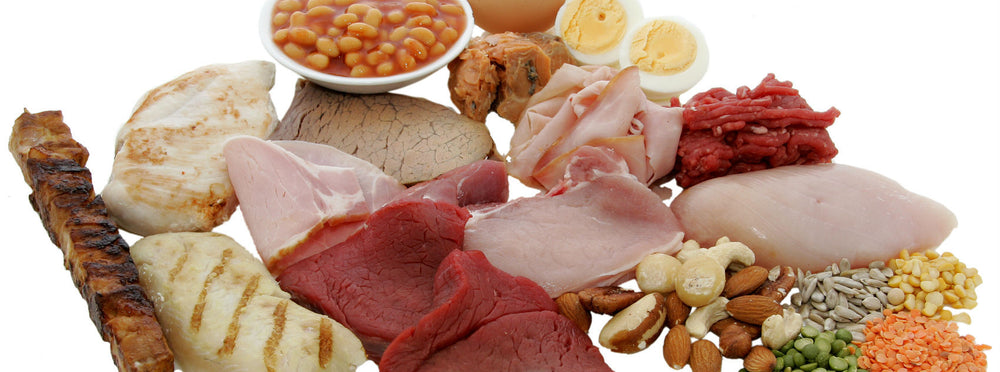Enough with the protein!

What do fitness guru Bob Harper's eating plan and breast milk have in common? Nothing. Emphasizing protein in your diet may be less important - and more counterproductive - than you think.
A couple of unrelated events prompted this week’s blog. The first was the dietary history of a patient I saw in consultation. The second was the heart attack experienced by Bob Harper, the 51 year old health coach from NBC’s The Biggest Loser. The common thread? A high protein diet.
First the patient. She has fatty liver, aches and pains, and is about 40 pounds overweight. Breakfast? 3 eggs with chicken sausage. Lunch? Chicken breast with salad. Dinner? Grass-fed beef or chicken, vegetables. Snacks? Protein bars. Or coconut milk with protein powder. Estimated total protein intake: 200 grams per day.
Next Bob Harper. His advice is to eat a diet where 30% of calories come from carbs, 30% of calories come from fat, and 40% come from protein. The promise being higher satiety, weight loss, more energy and better body composition. For a 2000 calorie diet, that works out to 200 grams of protein per day.
I bet that when you read that dietary history you heard nothing terribly unusual. You may have even admired the lack of sweets and fast food. And you probably found Mr. Harper’s advice reasonable and balanced – with relatively equal representation of all 3 macronutrients.
In both instances, you should have been struck by the over-representation of protein instead.
Here’s what we know: Diets associated with exceptional longevity are much LOWER in protein than the above examples. Less than 10% of calories or closer to 50 grams per day. And that protein comes primarily from whole-food plant-based sources, not chicken, beef or powders. Even human breast milk, arguably the most perfect and complete food for humans, is only 5% protein based on calories.
Here’s what we also know: Adverse effects of long term high protein intake are not negligible. According to Dr. Michael Greger and his Nutritionfacts.org website, these include “disorders of bone and calcium balance, disorders of kidney function, increased cancer risk, disorders of the liver, and worsening of coronary artery disease.”
I’m not saying that we should never eat another egg or chicken breast. But most of us don’t have to worry about having enough of these, and should probably eat far less. And we should certainly stop adding protein powders to everything.
What most of us are missing in our diets is not protein. It’s whole food fiber, omega 3 fatty acids and antioxidants. Which is why Step One Foods focuses on delivering these nutrients in amounts demonstrated to positively impact health. And on supplying protein from whole-food plant-based sources at levels known to support healthy longevity.
https://www.hindawi.com/journals/isrn/2013/126929/#B28

Tested & Proven Results.
- Cardiologist formulated
- Supported by over 500 publications
- Clinically-proven, in a double-blind randomized trial with Mayo Clinic and The University of Manitoba
80% of participants lowered their cholesterol in just 30 days. With just two servings per day, Step One Foods offers a proven-effective way to naturally lower LDL (bad) cholesterol.
Get heart health tips and articles like this, delivered right to your email.
New articles every week.
You may also like...

The Most Misunderstood Heart Number (Plus Your Tune-Up Checklist)

You don’t need to avoid foods with cholesterol…except for these



